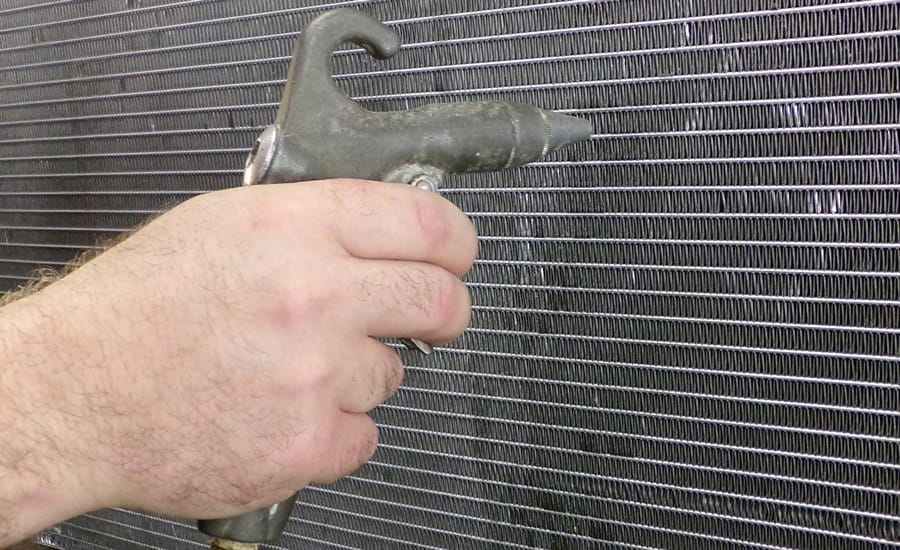The condenser coil is an important part of an air-con system that plays an important position in heat transfer. When it involves choosing the right condenser coil, two in style options are microchannel condenser coils and copper coils. Both have their execs and cons, making it essential to grasp the variations between them before making a choice. In this text, we will evaluate microchannel condenser coils and copper coils to help you determine which one is best suited on your needs.
Microchannel Condenser Coils
A microchannel condenser coil consists of multiple flat tubes made from aluminum, connected by small aluminum fins. The design allows for elevated floor area and improved heat transfer effectivity. Here’s a better take a glance at the advantages and disadvantages of microchannel condenser coils:
Advantages of Microchannel Condenser Coils:
- Enhanced Heat Transfer: The microchannel design increases the coil’s surface area, resulting York microchannel condenser in improved heat transfer efficiency. This allows for better cooling performance and energy efficiency.
- Lightweight: Microchannel condenser coils are generally lighter compared to copper coils, making them easier to handle and install.
- Corrosion Resistance: Aluminum is inherently resistant to corrosion, ensuring the longevity of the coil even in harsh environments.
- Reduced Refrigerant Charge: Microchannel condenser coils require a smaller volume of refrigerant, reducing costs and environmental impact.
Disadvantages of Microchannel Condenser Coils:
- Susceptible to Physical Damage: The delicate aluminum fins of microchannel condenser coils may be easily damaged if mishandled during installation or upkeep.
- Higher Initial Cost: Microchannel condenser coils are often dearer than copper coils, which can deter budget-conscious customers.
- Restricted Repair Options: In case of harm to the coil, repair options for microchannel condenser coils are restricted, typically requiring a full replacement.
Copper Coils
Copper coils have been utilized in air-con techniques for many years and have confirmed to be reliable and efficient. Here are the benefits and drawbacks of copper coils:
Advantages of Copper Coils:
- Excellent Heat Transfer: Copper is thought for its superior heat conductivity, permitting for environment friendly warmth switch and optimum cooling efficiency.
- Durability: Copper coils are highly durable and resistant to bodily damage, making them suitable for long-term use.
- Repairability: In case of damage, copper coils can typically be repaired somewhat than changed, saving each money and time.
- Lower Initial Cost: Copper coils typically have a lower upfront value in comparison with microchannel condenser coils, making them a extra affordable option.
Disadvantages of Copper Coils:
- Corrosion Susceptibility: Compared to aluminum, copper is extra vulnerable to corrosion. However, correct maintenance and protective coatings can mitigate this issue.
- Heavier Weight: Copper coils are heavier than microchannel condenser coils, which may make handling and installation more difficult.
- Higher Refrigerant Charge: Copper coils might require a bigger volume of refrigerant, resulting in increased prices and potential environmental impression.
Frequently Asked Questions (FAQs)
- Which sort of coil presents higher power efficiency?
The microchannel condenser coil design supplies enhanced heat switch effectivity, resulting in improved vitality effectivity compared to copper coils.
- Are microchannel condenser coils more sturdy than copper coils?
Both microchannel condenser coils and copper coils are sturdy, however copper coils have a slight benefit when it comes to total durability and resistance to physical injury.
- Can damaged microchannel condenser coils be repaired?
Repair choices for microchannel condenser coils are limited. In many cases, a broken coil could must be replaced totally.
- Which sort of coil is more cost-effective?
Copper coils typically have a decrease initial price in comparison with microchannel condenser coils, making them a cheaper possibility for budget-conscious shoppers.
- Do copper coils require extra maintenance in comparability with microchannel condenser coils?
Both copper coils and microchannel condenser coils require common maintenance to ensure optimal efficiency. However, copper coils could require additional attention to forestall corrosion.
Ultimately, the selection between a microchannel condenser coil and a copper coil is decided by your specific necessities, budget, and preferences. Consider elements similar to energy efficiency, weight, repairability, and preliminary value earlier than making a decision. Consulting with an expert HVAC technician can also present useful insights that can assist you make an informed selection.
Related posts
Recent Posts
Why “Standard Size” Windows Don’t Exist? Window Replacement Experts in Athens, AL Get the Perfect Fit
When it comes to home renovations, windows play a pivotal role in both aesthetics and functionality. Many homeowners in Athens, AL, might assume that window sizes are standardized, but this is a common misconception. In reality, the concept of “standard” window sizes is more myth…
Why do regular AC tune-ups extend the life of your cooling system?
Air conditioning systems are substantial investments, typically costing thousands of dollars to replace. Without regular maintenance, these systems deteriorate faster than necessary. Depending on the manufacturer, neglected HVAC systems can lose up to 5% of their efficiency yearly without proper maintenance. This decline happens gradually,…



